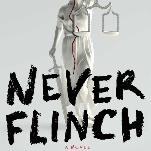Read This: The hypocrisy of Judge Judy
Over the last 20 years, Judge Judy’s Judith Sheindlin has presided over her televised court, dispensing justice, cracking wise, lecturing litigants about the importance of personal responsibility, and making viewers feel better about their lives by comparison. She also pioneered a new genre of court TV, with smart-aleck judges frequently lecturing or berating the people in front of them.
In a new article on Priceonomics, though, a former producer on an unnamed judge show explains the extent to which Judge Judy and shows like it are pure showbiz. Judy hasn’t been a judge in two decades, and the people being shushed by the bailiff when court is called to order are paid extras.
Her job, Houston says, is to exploit stereotypes. She’s looking for black women suing each other over a hair weave. Booking a mother-daughter pornstar team was a triumph. Scorned women are great. Before the show, producers pump the litigants up like they are boxers in the ring, so they’ll be ready to say horrible stuff about each other.
“It’s what the audience wants,” Houston says. “… it’s weird, it’s so weird.”
To Sheindlin’s credit, Houston says that Judge Judy aims to be “above brand.” (Houston did not work on Judge Judy, but court TV is a small world.) Judy’s producers want drama and some crazy, but not stereotypes or people who will fight all episode. The Judge Judyproducers prep litigants by helping them articulate their case.
For all Judy’s tough talk about consequences and responsibility, her show and shows like it actually make it possible for people to avoid the consequences of their actions. If the defendant loses, the show will cover the cost of their settlement. The plaintiff, meanwhile, gets their cash quickly, and everyone gets an appearance fee and a trip to L.A..
The other 40% of the time, Houston says, people do it for the money. Plaintiffs who know they will win want the quick settlement rather than a long court case. Defendants who think they’ll lose want the show to pay the damages they owe. And in either case, the show pays each person an appearance fee of around $150 to $500 and pays for their flight, hotel and meals.






































